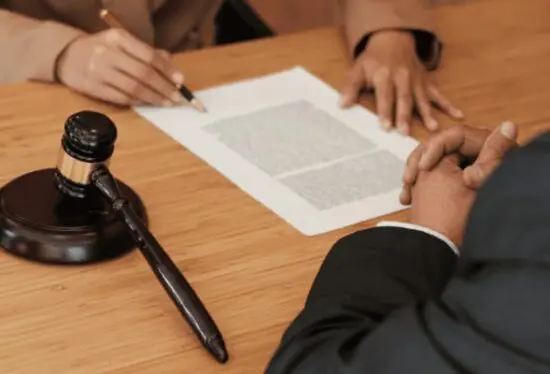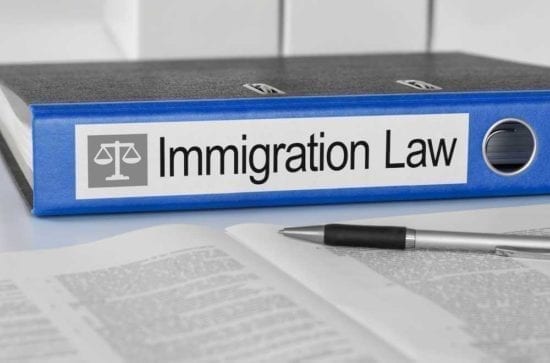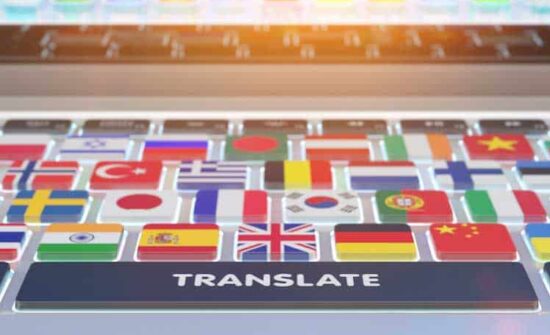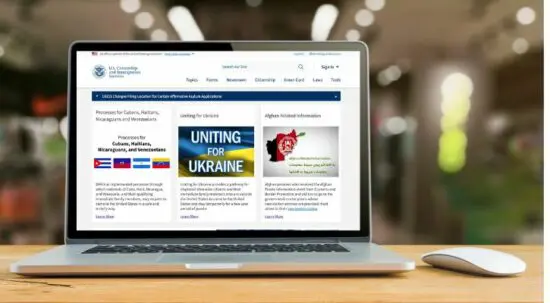What is legal help?
Legal help is advice about laws and representation in court. Lawyers, attorneys, and accredited representatives can offer legal help. In the USA, the terms lawyer and attorney are often used in the same way.
Lawyers specialize in different areas such as personal injury, criminal law, real estate, and family matters. This page focuses on immigration help.
Why is it important to get legal help?
You are not required to have a lawyer but the immigration process in the United States is complicated. An immigration lawyer can help you submit immigration forms and defend you in court. You have better chances with legal help.
An immigration lawyer can work to get you immigration benefits such as a Green Card, asylum, or citizenship. They can help you:
- Explore your options and next steps
- Understand the questions on your application and forms
- Avoid mistakes on your application that could get your case denied
- File your application and supporting documents
- Prepare for any interviews and find an interpreter
- Present your case in court
- Get updates and decisions on your case
- Improve your chances of winning your case
- Appeal a decision
When should I get legal help?
You can get legal help at any time. If you are looking for help changing your immigration status, it is best to have someone review your application before you send it in. There are not always enough immigration lawyers available for every case. It can sometimes take a while to find the right help.
It is important to get legal help if you are applying for asylum or are in removal proceedings in immigration court. The government does not assign free counsel to people in immigration proceedings or U.S. Citizenship and Immigration Services (USCIS) cases. You will be provided a list of free or low-cost legal services you can contact.
You can get a lawyer at any time during your case, even just for certain parts like an interview or hearing.
There are other situations, beyond immigration, where having a lawyer is important. This can include family law matters, employment or housing issues, criminal cases, understanding legal documents and contracts, problems getting public benefits, personal injury claims, and starting a business.
Who can give me legal help?
The following professionals can give legal advice and services in immigration and citizenship cases:
- Immigration lawyer or attorney: licensed by a state bar association to offer legal help. An attorney has graduated from law school and has a Juris Doctor (J.D.) degree.
- DOJ-accredited representative: individual or nonprofit organization trained to provide immigration services and is accredited by the Department of Justice (DOJ).
Both an immigration lawyer and a fully accredited representative can represent you before DHS, USCIS, EOIR (immigration court), and the BIA (immigration appeals). A partially accredited representative can only represent you before USCIS.
Notaries public in the U.S. are not trained or authorized to provide any legal services.
If you cannot find legal help, learn how to represent yourself in the section below.
How can I find legal help that I can trust?
If you are looking for help with an immigration case, make sure to talk to a lawyer who is experienced in immigration law. A lawyer who does not specialize in immigration law may not give you the right advice. Also, be aware that some businesses pretend to offer reliable legal services to get money. There are some simple things you can do to protect yourself.
For an immigration lawyer:
- Ask to see a copy of their license
- Check if they are in good standing with the State Bar Association and American Immigration Lawyers Association (AILA)
For an accredited representative:
- Ask to see proof of accreditation
- Check if they are on the DOJ’s list
Additional tips:
- Learn what to say when you call a lawyer
- Research options and reach out to more than one attorney
- Ask if they offer a free consultation
- Ask questions about the type of cases they work on and the services offered
- Ask who will work on your case and how to reach them
- Ask for the full fee schedule and required payments before starting
- Ask if they have a sliding fee scale to help with costs
Avoid scams and be careful of anyone who:
- Reaches out to you first
- Offers things that sound too good to be true
- Makes guarantees or promises benefits
- Offers legal services in exchange for a favor
- Refuses to set up a contract or agreement
- Tries to keep your original documents
- Charges for blank immigration forms
- Asks you to sign blank forms or forms you do not understand
- Tells you to lie on forms

Know how to protect yourself from notarios and fake websites. Learn what to do if you have been a victim of fraud.
Where can I find free or low-cost legal help?
You can find immigration lawyers and DOJ-accredited representatives who offer free or low-cost help through nonprofit organizations and immigration legal clinics. You can also ask people you trust for recommendations.
Resources
American Immigration Lawyers Association (AILA)
Directory of immigration lawyers. Each may charge different fees depending on your case. Contact them directly to find out if they offer a free consultation
Asylum Seeker Advocacy Project
Becoming an ASAP member provides you with free access to expert immigration attorneys, other asylum seekers, and critical resources
Citizenshipworks
Get connected with free, live, online legal help to support your citizenship process
Department of Justice (DOJ)
Offers a list of pro bono legal service providers for each state
Immigration Law Help
Online directory of nonprofit organizations offering free or low-cost immigration legal services. Search for legal help by state, zip code, detention facility, area of immigration, and types of services
Immigration Equality
Offers legal resources for LGBTQ+ and/or HIV-positive immigrant communities, including information about asylum and detention
UNHCR Hotline
Phone number for refugees and asylum seekers to speak to someone for help. Call 202-461-2356 or #566 from a detention facility phone
USAHello border resource list
Find organizations and helplines if you or a loved one are detained or separated from family
If you are looking for legal help outside the USA, find information on our international help page.
How can I get help if I am representing myself?
Not everyone can get legal help when they need it. You can represent yourself in front of USCIS or in immigration court. When you represent yourself, it is called “Pro Se.”
If you are representing yourself in immigration court, there are resources to help you.
- Ask your local bar association, university, or resettlement agency about free legal workshops and clinics.
- Submit free legal questions to the American Bar Association.
- Use Law Help Interactive to fill out legal forms.
- Ask your family and friends for help with reviewing forms and finding resources.
- Review free self-help and legal materials:
- Learn more about immigration court and steps to prepare for removal proceedings.
Working with a lawyer or accredited representative
Once you find legal help, there are steps you can take to make the most of it:
- You should be given a contract or agreement. Take time to review it and ask for a copy after signing.
- Have your documents ready (such as passport, birth certificate, and court papers).
- Decide what kind of help you want. You can hire a lawyer for advice, for help with paperwork, or to go to court with you.
- Ask questions so you understand your case and what will happen next.
- Respond quickly to requests for information.
- Keep track of important dates (deadlines, court dates, and appointments).
- Be honest and share all important facts.
- Check in regularly for updates.
- Ask for copies of forms and letters.
- Save receipts for all payments.
Your information is private. A lawyer or accredited representative cannot share it without your permission.
If you are not comfortable or your needs are not being met, you can find a new attorney or get a second opinion at any time.
What are my rights?
Everyone has the right to legal help. You will not be appointed a free lawyer in immigration court. It is your responsibility to get legal help. You will be given a list of free or low-cost legal service providers in immigration court.
You can file complaints against your lawyer with their state bar or with the Executive Office for Immigration Review. You can change lawyers if your attorney is not explaining your options in immigration proceedings or is not submitting the required documentation. You or your new attorney can ask for a copy of your case file.
You should report immigration scams to USCIS, the Executive Office for Immigration Review, or the Federal Trade Commission.
More from USAHello
Looking for specific information?
The information on this page comes from LawHelp.org, the National Immigrant Justice Center, the Department of Justice, UNHCR, and other trusted sources. We aim to offer easy to understand information that is updated regularly. This information is not legal advice.





